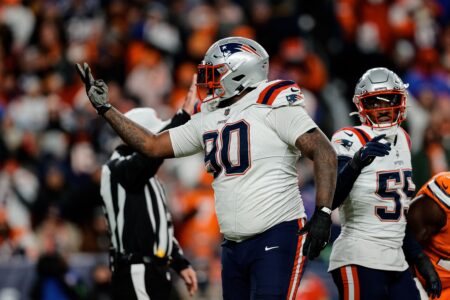.....yet the question remains. Is it worth a $2MM/yr cap hit for a "respected special teams captain and one of the top gunners in the league" IF the guy is only going to get a 2-4 opportunities a game to make an impact. And remember those are just "opportunities" to make an impact. You can't expect a player to make an impact just because he gets a chance.
Sup stated in a recent post that "there ARE 3 units on the football team". And there WAS a time where I would agree wholeheartedly. But I'm questioning whether that time has changed.
Think about it. Not only are their rules changes that have almost removed the KO return from the game, there are other rule changes that keep defenses from attacking the snapper, overloading one side, using another player to get vertical to blk a kick, etc. All these changes make FG's and punts more effective. Talk about extra points being automatic. 45 yd FG's are made close to 90% of the time. Its almost impossible to block a kick these days.
So having a great place kicker, punter, and snapper IS important. But a gunner? Your team is literally littered with reserve WR's and DB's who are tough skilled players who run sub 4.5 40's. Are you telling me you couldn't find 2 guys out of all those, who can also play gunner for the one or 2 punts that are actually going to be returned per game?
When there was a time when 5 or 6 punts would be returned each game as well as an equal number of KO's. Those were the days when a specialist like Slater could thrive.
BTW- it would help this discussion if we had some hard numbers on the numbers on punts, punt returns, KO returns and such. I'm just using anecdotal observations and could be talking out of my ass. I was hoping a stat geek (you out there B6) could confirm or debunk my hypothesis.
Finally, I don't think that BB should spend any less time on practicing special teams situations. I don't think he should place any less of an imperative on getting great play from our kicking game. What I am questioning is whether the days of being able to afford to keep roster spots open for players who ONLY play on special teams is over (obviously that excludes snappers and kickers)
So for that reason, Sup and PC, Slater is the perfect example, because he is a ST specialist who is very good at what he does....but is it enough to reserve a roster spot that that kind of exclusive player? I'm not sure any more. Maybe I'll wake up next week and feel differently.


















